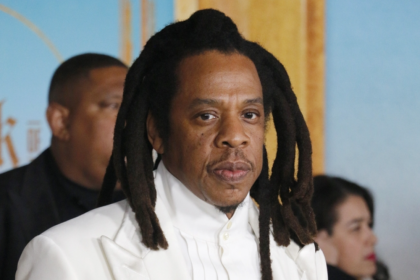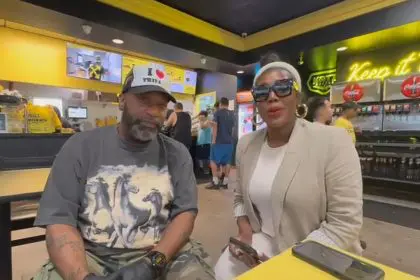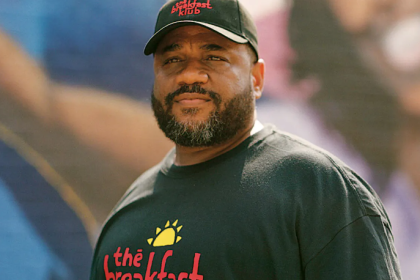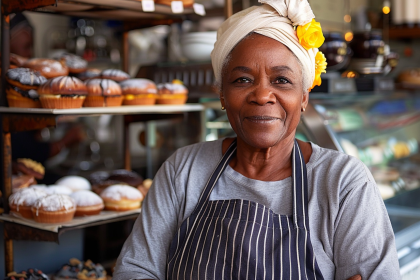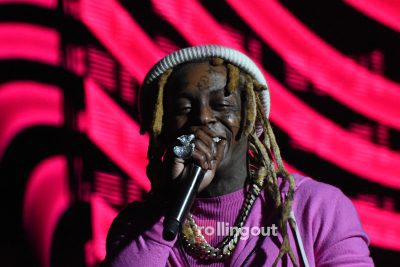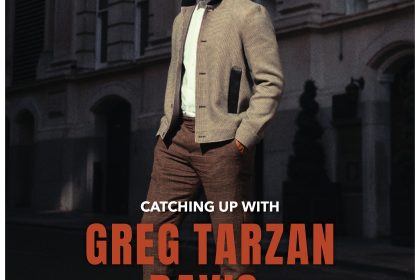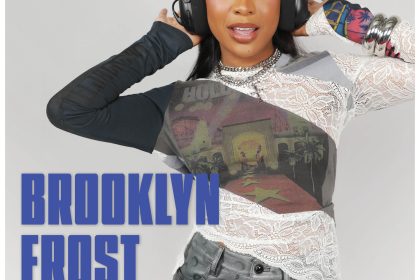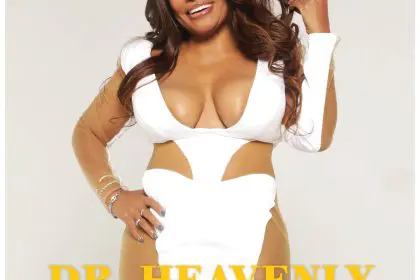 Picture this: Jay-Z, slightly leaning back in a leather high back swivel chair, with his legs crossed. One hand is in a loose “I’m in control” fist — shiny ring exposed — resting on his knee, the other flat atop the long glossy mahogany table he sits at the head of. His swag, a fine tailored suit … his woman, right beside him, perfectly poised in a way that seems to affirm his power and harness her own. Directly behind him is the great seal of the United States. He was in the president’s seat in the White House Situation Room during a recent visit … and he didn’t look one bit out of place. He’s become just that big.
Picture this: Jay-Z, slightly leaning back in a leather high back swivel chair, with his legs crossed. One hand is in a loose “I’m in control” fist — shiny ring exposed — resting on his knee, the other flat atop the long glossy mahogany table he sits at the head of. His swag, a fine tailored suit … his woman, right beside him, perfectly poised in a way that seems to affirm his power and harness her own. Directly behind him is the great seal of the United States. He was in the president’s seat in the White House Situation Room during a recent visit … and he didn’t look one bit out of place. He’s become just that big.
The Hustle …
Born Shawn Carter, the image just described and recently captured, reveals just how far Jay-Z has come from the Marcy Houses public housing project in Brooklyn, N.Y., where he spent his days grinding it out as a hustling-inclined youth. Not unlike the scores of other black children born into challenging circumstances, for little Shawn it was all about survival and trying to make sense of it all on the rough-and-tumble Brooklyn streets. His father had fled the scene. His mother, Gloria Carter, was trying to make ends meet, and — you know how the story goes — he tried to do his part to help out, which involved venturing into the drug game. He played the streets like a fiddle, which he expressed on his first album, Reasonable Doubt, in the song “Soon You’ll Understand”:
“I seen you workin two or three jobs, Daddy left
I thought I was makin things better, I made it worse
Dear ma, I’m in the cell, lonely as hell
Writin this scribe, thinkin bout how you must feel inside
You tried to teach me better, but I refused to grow
You said the street claim lives, but I wanted things like
bling bling ice I was wrong in hindsight …”
But, with each hustle and brush with the law, and each coming-of-age moment in the ‘hood, he was gathering invaluable fodder for his craft. In demonstrating his extraordinary ability to convey his real-life experiences lyrically by doing local shows and riding the coattails of then-successful artists such as Jay-O, Big Daddy Kane and Mike Geronimo, Shawn Carter was stockpiling street cred that would later be used to fuel a career that would ultimately span some 20-plus years. And that’s no easy feat in the rap game.
Unlike other rappers of his day who fantasized about street life from a suburban, middle-class vantage point and tried to snow fans with toothless lyrical thuggery, “Jazzy” (as he was known initially) genuinely wallowed in it, earning license to relate it to the masses with profound credibility and authority. Along with that, his scholarly wit, laser focus and near-intimidating confidence set him apart from his peers — even those that did live the street life with him — giving rise to a burgeoning multi-generational leader.
Jay-Z’s voice resonated like a siren in the streets of New York City, recruiting disciples, one after another. He recognized the groundswell to the point that he knew he was due for a shot at a record deal. He devised a strategy and went for it, but was flatly denied. No label would sign him and back to the drawing board he went.
The Flow …
Probably confused by his apparent — and in view of his lyrical prowess, deserved — sense of entitlement, Jay-Z decided to go another route. He hooked up with college-educated entrepreneur Damon Dash and Kareem “Biggs” Burk, through his friend DJ Clark Kent and created the independent label, Roc-A-Fella Records.
After striking a deal with Priority for distribution in ‘96, Jay’s first record, Reasonable Doubt was released. With his new partners’ business savvy and the sweat equity he earned grinding in the streets of New York, it went on to sell millions. The company began to flourish and along with a side venture he started in apparel with Dash called Rocawear, Jay-Z the businessman was born.
 The success of Reasonable Doubt set the stage for a string of multiplatinum releases for Roc-A-Fella: In My Lifetime, Vol. 1 (1997); Vol. 2 … Hard Knock Life (1998); Vol. 3 … Life and Times of S. Carter (1999); The Dynasty: Roc La Familia (2000); The Blueprint (2001); The Blueprint 2: The Gift & The Curse (2002); The Black Album (2003); Kingdom Come (2006); American Gangster (2007); and The Blueprint 3 (2009) all earned the high achieving sales honor — and Rocawear became the brand on the streets. The cash was flowing like water.
The success of Reasonable Doubt set the stage for a string of multiplatinum releases for Roc-A-Fella: In My Lifetime, Vol. 1 (1997); Vol. 2 … Hard Knock Life (1998); Vol. 3 … Life and Times of S. Carter (1999); The Dynasty: Roc La Familia (2000); The Blueprint (2001); The Blueprint 2: The Gift & The Curse (2002); The Black Album (2003); Kingdom Come (2006); American Gangster (2007); and The Blueprint 3 (2009) all earned the high achieving sales honor — and Rocawear became the brand on the streets. The cash was flowing like water.
Despite the success of Roc-A-Fella and Rocawear, the relationship between Jay-Z and Dash ended up hitting a snag. The two parted ways not-so-amicably in 2004, with Dash selling his interest in Roc-A-Fella to parent company Island Def Jam Records for $10 million. Jay-Z took total control of both. Dash also sold his stake in Rocawear for $22 million to the, at that point, bona fide entertainment mogul, (which he later sold to Iconix Brand Group, for $204 million, but retained his stake in the company). Dash was out of the picture and Jay-Z continued to build his empire.
Shawn Carter, the businessman, became co-owner of the 40/40 Club, a group of upscale sports clubs in New York, Atlantic City and Chicago. He also serves as co-brand director for Budweiser Select; is part-owner of the New Jersey Nets; invested in the real estate development venture, J Hotels in Chelsea, New York; and continues to make platinum-selling records at age 40. His most recent album, The Blueprint 3, spawned the No. 1 hit, “New York State of Mind,” which features Alicia Keys. Rap is a young man’s game … who does that? The all-mighty J-Hova, that’s who.
To Whom Much is Given …
J-Hova — another of his alternative monikers and an obvious play on his omnipotence in the rap game — has made a fortune after selling over 40 million records worldwide. That coupled with his other business interests puts his net worth at an estimated $500 million, which by anyone’s standards, moves him to the top of the proverbial mountain. And he got the girl, but that’s a whole other story.
At this point in his career, the rap impresario has quite the aerial view of all those faithful disciples he’s amassed along the way. If his name is on it, they are guaranteed to show up. A Jay-Z concert sells out in minutes, no matter the size of the venue and feels more like a worship service. Can a rapper “take it to church” as people of old used to say? Apparently, because all you hear at his shows is “Hova, Hova” being chanted in between every song, with every lyric and every nuance of his extensive catalog being delivered on demand. “Holy” hands are even lifted to the “hip-hop messiah” in the form of his signature diamond cutter symbol being thrown up frenetically — and he responds with more lyrics of self-exaltation.
But those parallels call for deeper exploration into his relationship with “his people.”
While Jay-Z has worked hard and endured his fair share of peril to arrive at a place of incredible influence, he’s certainly ridden the wave of support from the hip-hop community to get there. That said, in the court of public opinion and as a biblical mandate — since he insists on being “J-Hova,” he’s been given much and in return, much is required. What has he given back?
True enough, his lyrics, though at times self-aggrandizing in standard hip-hop fashion, do often dole out street-packaged advice, like in the song “Izzo (Hova)”:
Hov’ is back, life stories told through rap
N—-z actin like I sold you crack
Like I told you, sell drugs; no, Hov’ did that
So hopefully you won’t have to go through that …
 But is that enough?
But is that enough?
Jay-Z has the minds of young black men and women around the globe virtually under his command, and he has the means to touch their lives way beyond just encouraging lyrics cloaked as pie-in-the-sky fantasy. There are numerous causes in the hip-hop-loving community that need a champion like the almighty J-Hova. From support of educational initiatives — since he never finished high school — to funding crime prevention or drug programs — since he experienced firsthand the ravages of the streets — and even to his appearance, since his “pants aren’t on the ground” and he runs a clothing company. The hip-hop community is his to mold. In view of that, what causes has he publicly supported?
The philanthropic efforts, at least publicly, that are on record are his attempts to help raise awareness of and combat the global water shortage and his pledge of $1 million to Hurricane Katrina relief. But that’s basically all the record shows. Unless something was missed, it appears that his ascension to that mountaintop has been more of a looking glass experience for his fans. The vast majority of his acolytes seem to be relishing his high-gloss image and “I run this town” attitude, versus evaluating what he’s doing behind the scenes to justify the adoration. Don’t they deserve a little more?
The Plea …
Contrary to what the stage name “J-Hova” implies, Shawn Carter is not the lone savior of the hip-hop community. But if he can emerge from dealing drugs and engaging in street warfare to build a $500 million empire and look right at home sitting in the same seat in which the leader of the free world sits, his fans should absolutely be reaping much more from the fruits of his awe-inspiring career.

